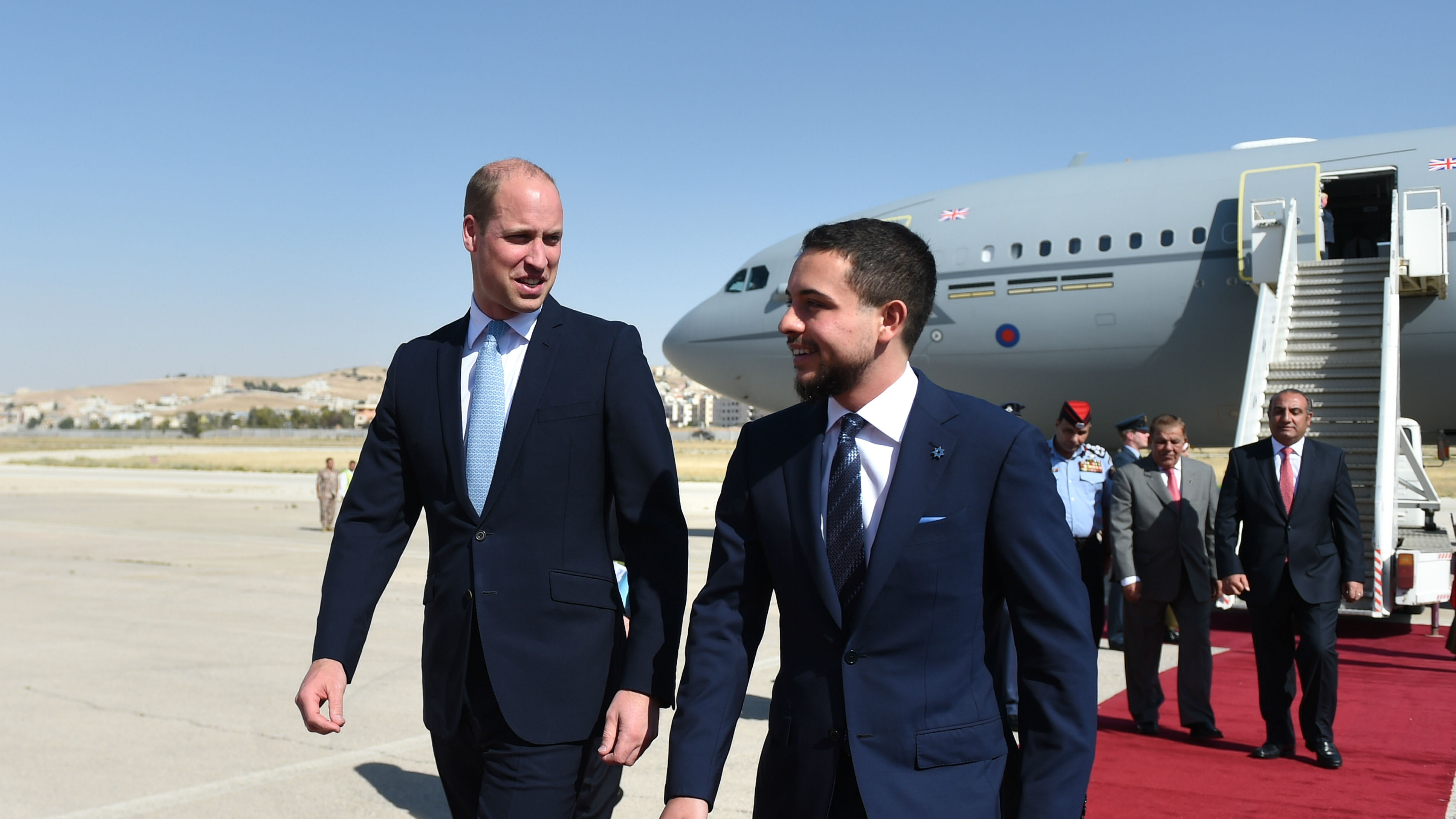Why Prince William can’t avoid politics on Middle East tour
Duke of Cambridge due to meet Israeli and Palestinian leaders in biggest diplomatic test of his life

A free daily email with the biggest news stories of the day – and the best features from TheWeek.com
You are now subscribed
Your newsletter sign-up was successful
Prince William has begun a historic trip to the Middle East that will include the first ever official visit to Israel and the Palestinian territories by a British royal.
The Duke of Cambridge is currently in Jordan but is due to meet Israeli Prime Minister Benjamin Netanyahu and Palestinian Authority President Mahmoud Abbas later this week.
Kensington Palace has stressed that the trip is non-political, but the Prince’s schedule alone makes that prospect impossible.
The Week
Escape your echo chamber. Get the facts behind the news, plus analysis from multiple perspectives.

Sign up for The Week's Free Newsletters
From our morning news briefing to a weekly Good News Newsletter, get the best of The Week delivered directly to your inbox.
From our morning news briefing to a weekly Good News Newsletter, get the best of The Week delivered directly to your inbox.
“British royal visits usually try to stay above politics, but any foray into this region is inherently political,” says CNN.
The “most challenging diplomatic trip of his lifetime by some measure” will see Prince William “walking the tightrope of Middle Eastern politics for five days as he attempts to avoid offending any interested party”, adds The Daily Telegraph.
Prince William is due to travel from Jordan to Israel tonight. Tomorrow he will visit the Yad Vashem Holocaust memorial, in Jerusalem, and meet Netanyahu, who has faced international criticism for using live fire against Palestinian demonstrators in Gaza and for his continued settlement expansion.
The visit by a member of the Royal Family has been seen by some commentators as giving legitimacy to Netanyahu’s government and to Israel as a UK ally.
A free daily email with the biggest news stories of the day – and the best features from TheWeek.com
In an effort to maintain balance, William will also meet Palestinian leaders in the West Bank.
However, Israeli officials have been enraged by Kensington Palace’s statement about the Middle East tour, which describes Jerusalem’s Old City as located in occupied Palestinian territory.
Meanwhile, Manuel Hassassian, the Palestinian diplomatic representative in London, has claimed the visit will be considered as an “act of indirect apology” for the 1917 Balfour Declaration, the British statement of support for a Jewish homeland.
British officials “swear blind” the timing of the trip has “nothing to do with this year’s 70th anniversary of Israel’s creation”, says the BBC.
However, nobody can quite explain why it had to be this year.
“For just under three decades, after World War One, Britain controlled present-day Jordan, Israel and the occupied territories; three decades that would see the Middle East reshaped by European design, compromise, and failure,” notes the broadcaster.
There has been no official royal visit since Palestine “slipped from the hands” of Britain in 1948, the BBC adds.
“It is into this cauldron that Prince William will enter,” says CNN, “and a lifetime of royal training will be put to the test.”
-
 Buddhist monks’ US walk for peace
Buddhist monks’ US walk for peaceUnder the Radar Crowds have turned out on the roads from California to Washington and ‘millions are finding hope in their journey’
-
 American universities are losing ground to their foreign counterparts
American universities are losing ground to their foreign counterpartsThe Explainer While Harvard is still near the top, other colleges have slipped
-
 How to navigate dating apps to find ‘the one’
How to navigate dating apps to find ‘the one’The Week Recommends Put an end to endless swiping and make real romantic connections
-
 Epstein files topple law CEO, roil UK government
Epstein files topple law CEO, roil UK governmentSpeed Read Peter Mandelson, Britain’s former ambassador to the US, is caught up in the scandal
-
 Iran and US prepare to meet after skirmishes
Iran and US prepare to meet after skirmishesSpeed Read The incident comes amid heightened tensions in the Middle East
-
 Israel retrieves final hostage’s body from Gaza
Israel retrieves final hostage’s body from GazaSpeed Read The 24-year-old police officer was killed during the initial Hamas attack
-
 China’s Xi targets top general in growing purge
China’s Xi targets top general in growing purgeSpeed Read Zhang Youxia is being investigated over ‘grave violations’ of the law
-
 Panama and Canada are negotiating over a crucial copper mine
Panama and Canada are negotiating over a crucial copper mineIn the Spotlight Panama is set to make a final decision on the mine this summer
-
 Why Greenland’s natural resources are nearly impossible to mine
Why Greenland’s natural resources are nearly impossible to mineThe Explainer The country’s natural landscape makes the task extremely difficult
-
 Iran cuts internet as protests escalate
Iran cuts internet as protests escalateSpeed Reada Government buildings across the country have been set on fire
-
 US nabs ‘shadow’ tanker claimed by Russia
US nabs ‘shadow’ tanker claimed by RussiaSpeed Read The ship was one of two vessels seized by the US military